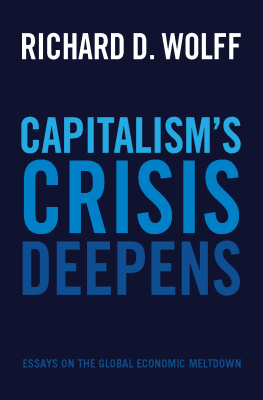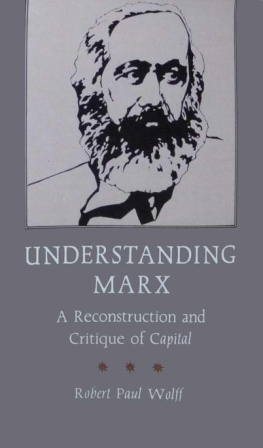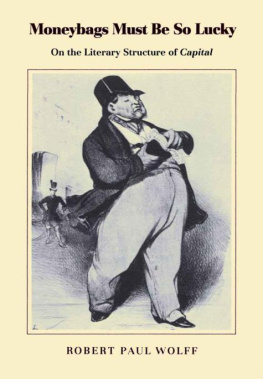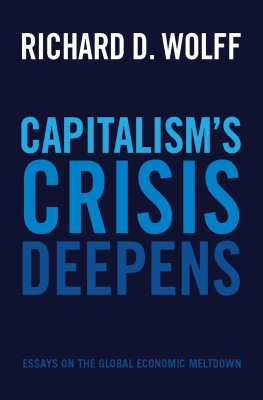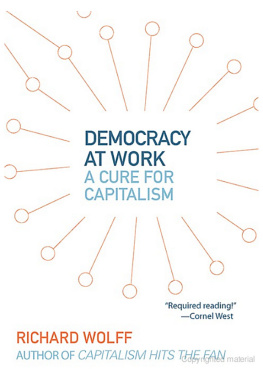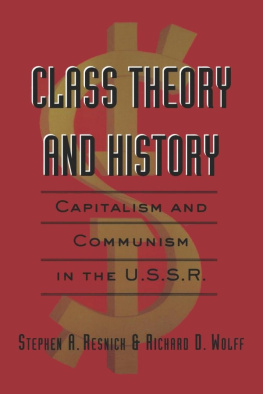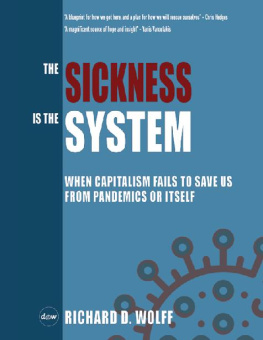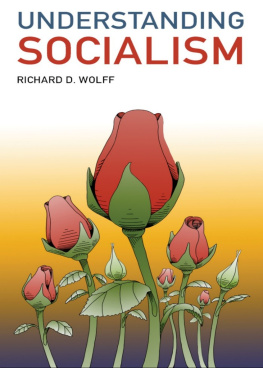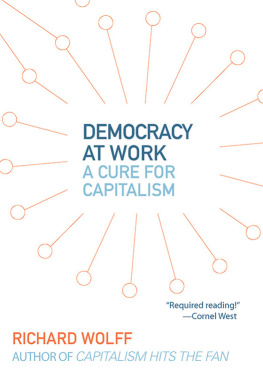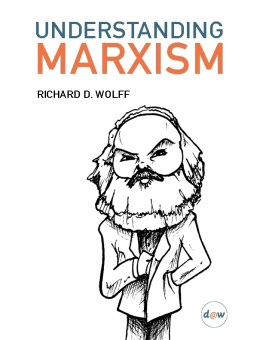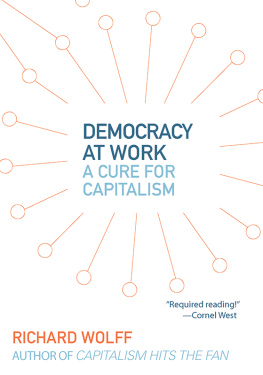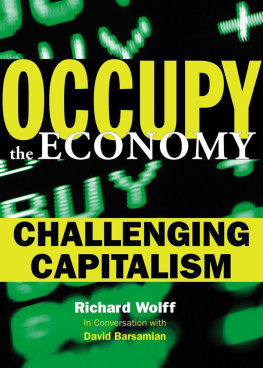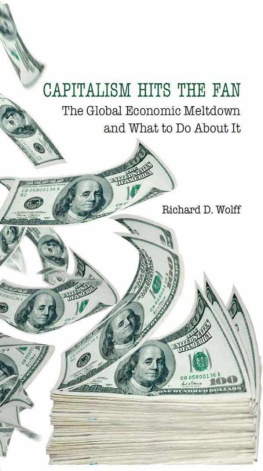Capitalist Crisis and the Return to Marx
March 18, 2010
Marxian analyses are now resurfacing in public dialogues about economy and society. A generation of marginalization is fading as a new generation discovers the diverse richness of the Marxian traditions insights. Just as an economic crisis in 1848 helped provoke and shape Marxs original insights, todays crisis helps renew interest in Marxism.
In the century before the 1970s, the victims of capitalisms recurring crises and its critics increasingly turned toward the work of Marx and other Marxists. The Marxist tradition of social analysis therefore spread widely and deeply across the world. As it interacted with many different cultural, political, and historical contexts, the tradition developed multiple, differentand sometimes sharply contestedinterpretations or versions of Marxist social theory. Marxism became the richest available accumulation of critical analyses of capitalism and of critical engagements with the theories that supported capitalism. It gathered the theoretical and practical lessons drawn from successes and failures of political movements more or less inspired by Marxism. Today it is an invaluable resource for theorists of and activists for social change beyond capitalism.
Capitalisms defenders have mostly sought to repress, ignore, or otherwise marginalize Marxism and Marxists. While often successful, their efforts could only slow and punish Marxisms advances in the century before 1975. Unevenly yet relentlessly, the tradition grew. From a handful of theorists and activists, Marxism spread to Marxist labor unions; political parties; newspapers; research institutes; local, regional, and national governing regimes; and internationals. It also generated internal differences, debates, and conflicts, mostly peaceful but sometimes violent, among its constituent tendencies.
However, the 1970s changed the conditions of the social prospects for Marxism. Capitalism had recovered from much of the damage to its support and reputation caused by the Great Depression of the 1930s. PostWorld War II reconstructions, time, and hope had all helped weaken memories of that Depression. Economic, political, and cultural conditions had ripened enough by the 1970s to enable a major, sustained counterattack against reforms, regulations, and other Depression-era state interventions imposed upon capitalists. The deepening internal contradictions of the actually existing socialist countries that officially celebrated Marx and Marxism facilitated the global campaigns against them by leading capitalist nations. That program targeted those countries, but also Marx, Marxism, and communism everywhere as synonyms and as the dangerous end point toward which social democratic state intervention led.
A resurgent capitalism celebrated its renewed strength and the weaknesses of its enemies. In the United States, the New Deal, already compromised from 1945 to 1970, was afterward systematically undermined. Unions social influence was greatly reduced. Labor market conditions shifted to allow a permanent end to the pre-1970s record of rising real wages for 100 years. The Reagan election of 1980 sealed the change. Economics, politics, and culture shifted rightward markedly in the Anglo-American spheres but beyond as well. An era of neoliberalism was promoted that took the form of privatization, deregulated markets, getting-rich-quick schemes, and a pervasive individualism that suspected and dismissed most collective efforts and values.
In the 1970s, a new world of investment opportunities also opened up for multinational capitalist enterprises. Technological changes in internal enterprise controls (computers), transportation (jet aviation), and communication (the Internet) enabled greatly enhanced global coordination within and among capitalist corporations. Producing, installing, maintaining, and improving those technological changes became extremely profitable investment opportunities as well. Most important was the global opening up of vast new sources of relatively cheap labor (especially in and also immigrating from the former second and third worlds). Just as technological changes drove up the productivity of labor, real wages were prevented from rising. Whenever productivity rises while real wages stagnate, the result is an explosion of the capitalist surplus. In the thirty years before 2008 the United States experienced one of the greatest profit booms in capitalist history.
Capitalisms admirers celebrated, as labor, socialism, and Marxism weakened and shrank, unevenly but nearly everywhere. Capitalisms apologists insisted yet again that capitalism had overcome its crisis tendencies. Thus Alan Greenspan, former chairman of the US Federal Reserve, said in the late 1990s that we live in a new economy. Once the former Soviet Union had officially imploded, Marxisms enemies changed their way of marginalizing if not eliminating the tradition. Where before they had portrayed Marxism as an erroneous theory informing a failed and also treasonably dangerous practice, over the last thirty years they treated it more as a fading historic relic that no modern person need consider, let alone study. Capitalism, they repeated, had won the struggle with socialism and emerged as the system to which there is no alternative. The United States was its appropriate superpower champion.
Adjusted rationales were correspondingly developed to continue to exclude Marxist analyses from the mass media and Marxists from academic and political positions. There was no need for them; history had rendered them anachronistic. The world had moved on. Not a few Marxists found it difficult to sustain their beliefs in so changed an environment; they therefore modified their positions or abandoned Marxism altogether.
Once Greenspans new economy had collapsed in 2008 and been exposed as the same old crisis-prone capitalism, Marx and Marxism began to be rediscovered again. People are turning to the Marxian tradition for help in understanding the crisiss causes and finding solutions. They soon encounter the traditions crisis-focused debate over reform versus revolution: how should the capitalist economy and society be changed in response to the crisis? In this classic form of the debate, some Marxistsreformerspropose diverse sorts of transitions to socialism while othersrevolutionariesattack such socialisms in the name of communism. Still other Marxists criticize both socialism and communism as theorized and actualized over the last century. It turns out that the anticapitalist impulses shared by nearly all Marxists inform multiple, different, and sometimes incompatible theories and arguments. While this yields a rich tradition of critical social analysis, it obliges every writer within the tradition to identify and justify whichever particular kind(s) of Marxian theory inform(s) that writers analyses.
So let me be clear here. In this essay, I use a particular interpretation of Marxian theory to provide a unique explanation of the current capitalist crisiss multiple causes with emphasis on the United States. I also use that interpretation to criticize both sides in the classic reform versus revolution debate that is resurfacing among Marxists and many others. On the bases of this interpretation and criticism, I offer a Marxian argument for a different sort of revolutionary response to capitalist crises. My intervention, together with those of other Marxists, demonstrates again that Marxism represents capitalisms most persistent, most developed, and most profound self-criticism.
Oscillating Capitalist Forms and Theories
Capitalist economies everywhere display a recurring pattern of oscillation. Periods of relatively limited state regulatory and other interventions in markets and private property repeatedly encounter and manage crises until one arrives that cannot be managed. Then, transition occurs to a period with relatively more state economic interventions. Crises continue to erupt and are managed until a crisis appears that cannot be managed. Then a transition occurs back to a period of relatively less state economic intervention. What remains the same across both periods (in my interpretation of Marxian theory) is the capitalist structure of production. In that particular structure of production, a small group of peopletypically a corporate board of directorsappropriates the surplus produced by a large, different group of hired laborers.

